Featured News
2025 INFORM & ICIEM meetings in Kyoto, Japan

Dr. Gillingham presented research results at the INFORM meeting and the International Congress for the Study of Inborn Errors of Metabolism (ICIEM) in Kyoto, Japan, September 2025. Pictured here are the US metabolic dietitians who attended the meeting. The research summary will be available in the Winter 2025 newsletter, coming soon.
Gabriela Elizondo wins OHSU Department of Medicine poster award

Congrats to Gabriela Elizondo who won an award for her poster “Acute Arrhythmias in a Long-chain-3-Hydroxyacyl-CoA Dehydrogenase Deficiency (LCHADD) Mouse Model” at the Third Annual OHSU Department of Medicine Research Retreat!
Garen Gaston wins poster award at 2024 INFORM meeting
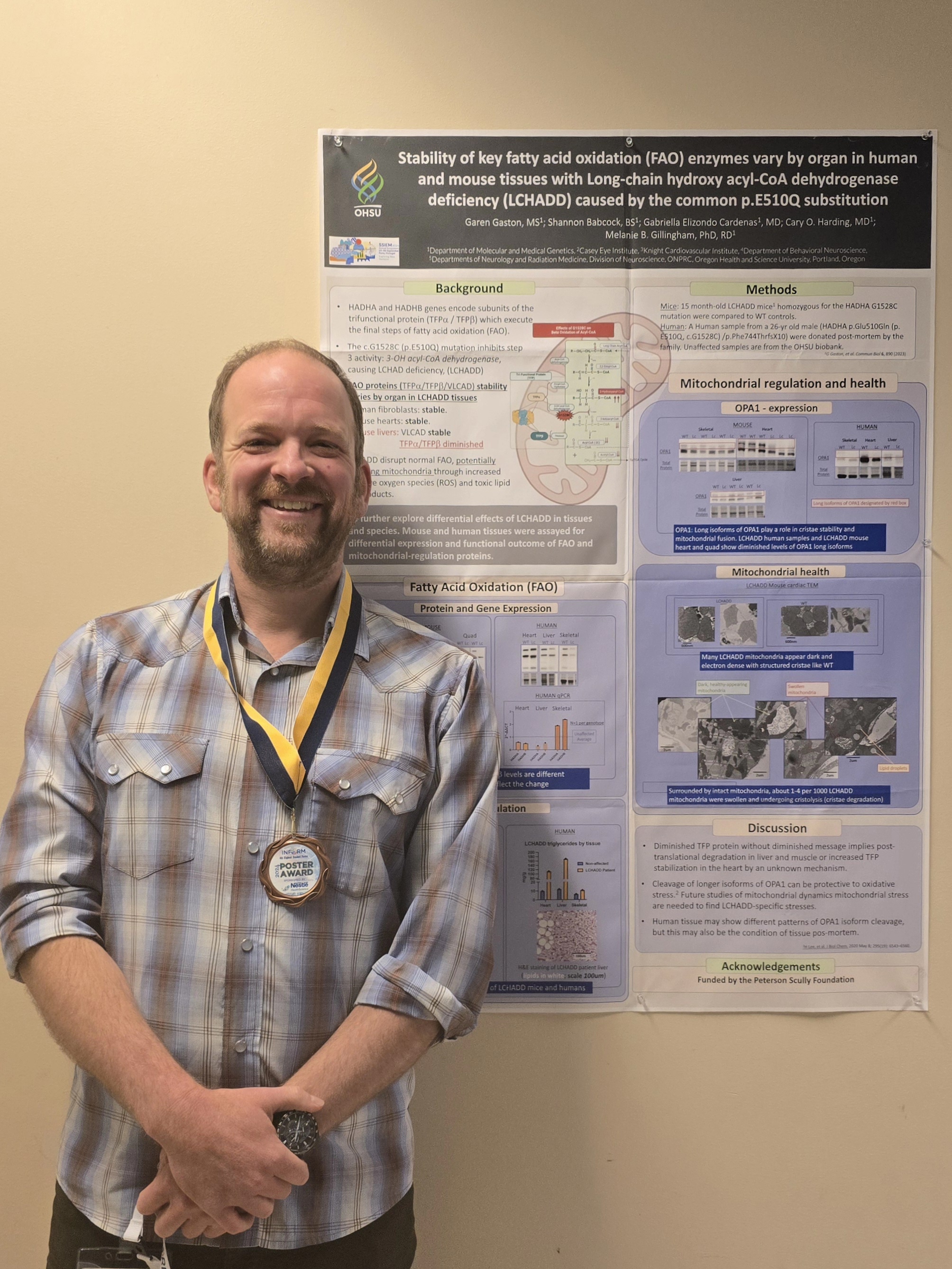
Congrats to Garen Gaston who was awarded 4th place for his poster “Stability of key fatty acid oxidation (FAO) enzymes vary by organ in human and mouse tissues with Long-chain hydroxy acyl-CoA dehydrogenase deficiency (LCHADD) caused by the common G1528C variant” at the 2024 INFORM meeting in Porto, Portugal!
View his poster and a list of the other winners on the INFORM website.
2024 Society for the Study of Inborn Errors of Metabolism Conference in Porto, Portugal
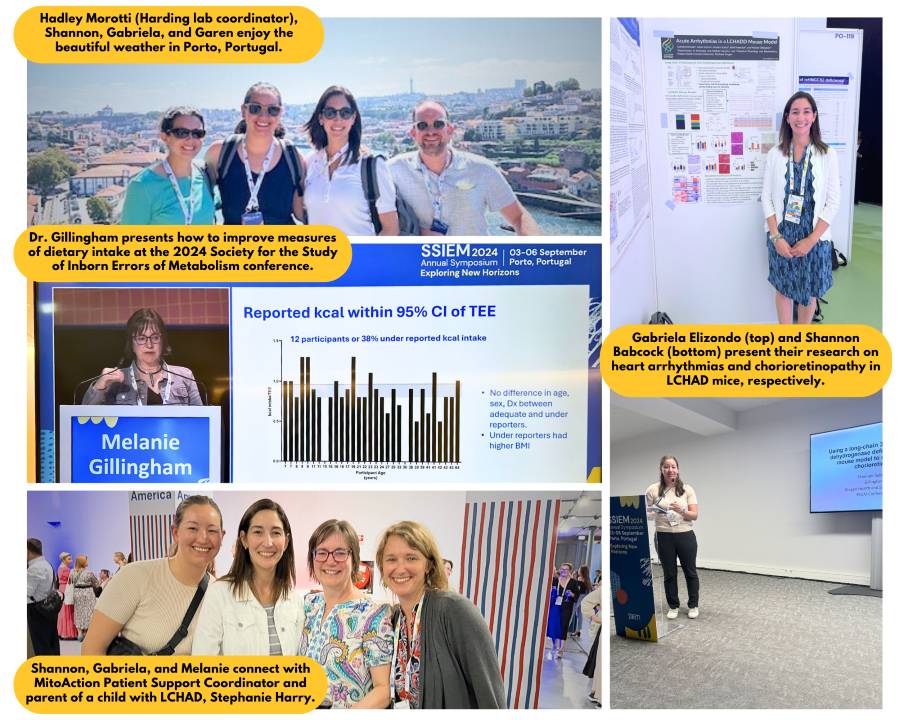
Left column, from top to bottom: OHSU Molecular & Medical Genetics researchers enjoy a beautiful day in Porto, Portugal; Dr. Melanie Gillingham presents how to improve dietary intake measures; Shannon, Gabriela and Melanie connect with MitoAction Patient Support Coordinator and parent of a child with LCHAD, Stephanie Harry.
Right column, top to bottom: Gabriela Elizondo presents her poster on acute heart arrhythmias in LCHAD mice; Shannon Babcock presents her research on chorioretinopathy in LCHAD mice.
2024 Society for Inherited Metabolic Disorders and Genetic Metabolic Dietitians International Conferences
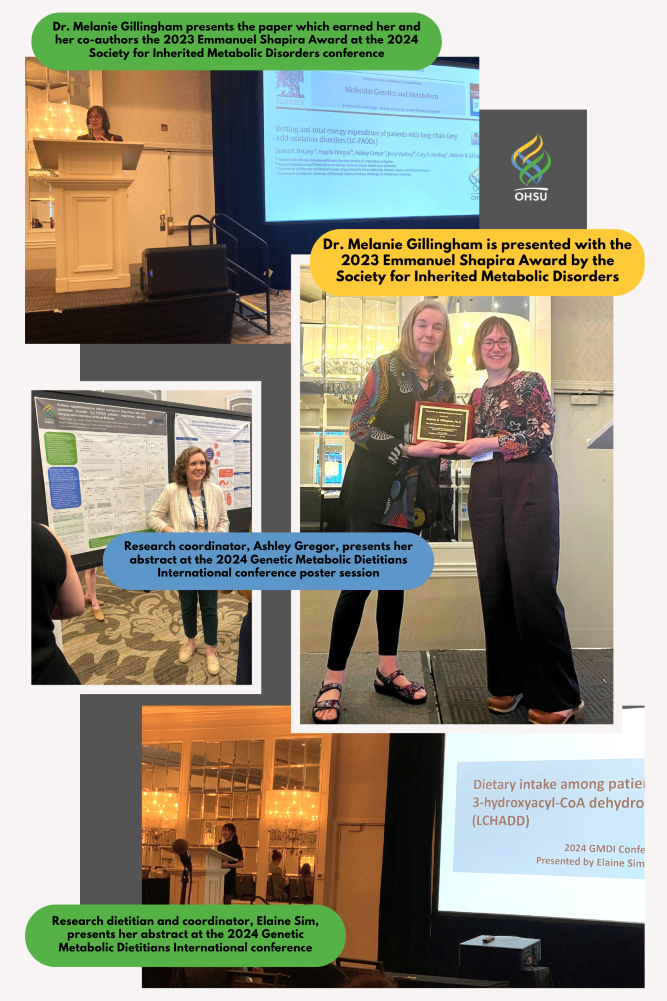
From top to bottom: Dr. Melanie Gillingham presents the paper which earned her and her co-authors the 2023 Emmanuel Shapira Award; Dr. Melanie Gillingham is presented with the 2023 Emmanuel Shapira Award at the 2024 SIMD conference; Ashley Gregor presents her abstract at 2024 GMDI conference poster session; Elaine Sim presents her abstract in a talk at the 2024 GMDI conference.
2024 International Metabolic Conference for Fatty Acid Oxidation Disorders
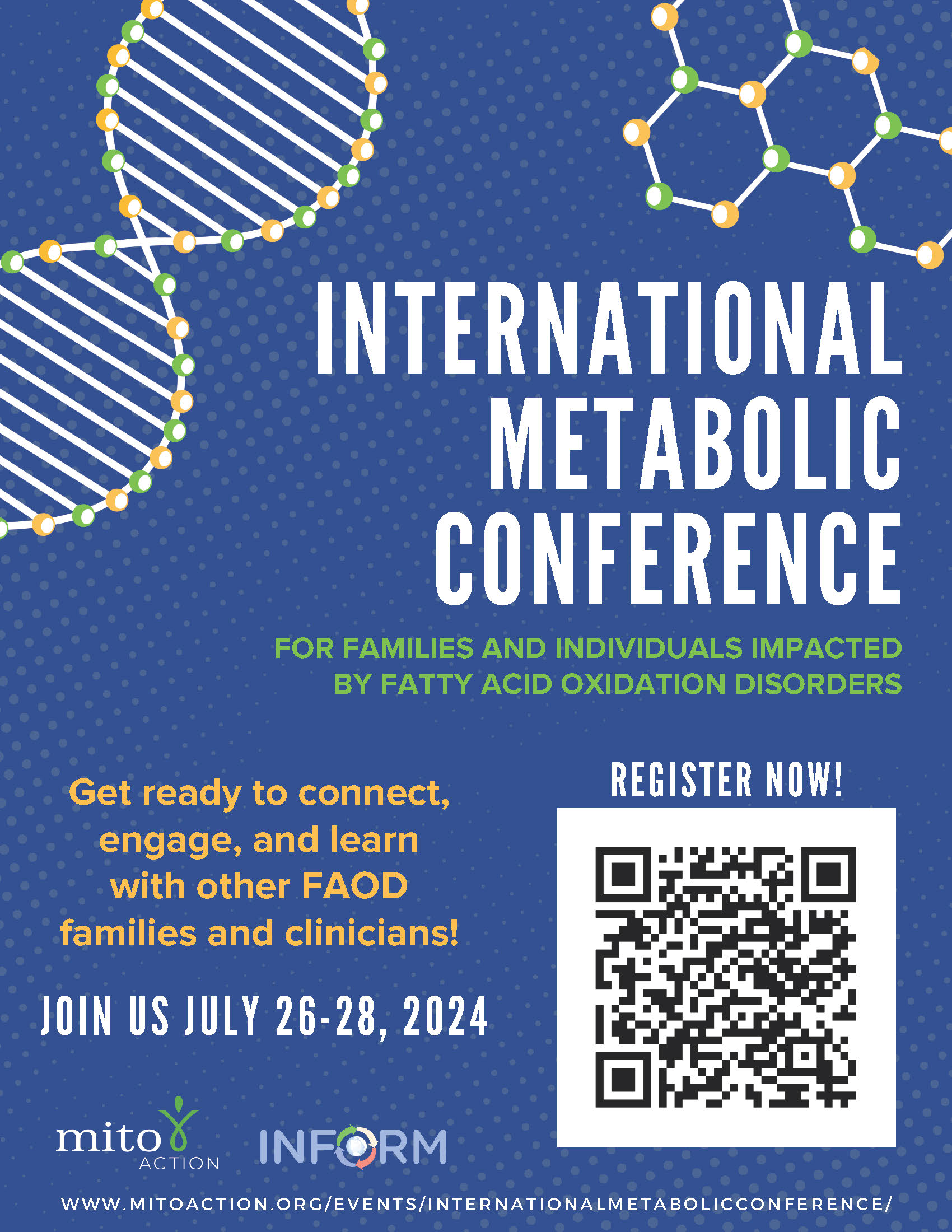
We would like to share that MitoAction, in conjunction with INFORM, is hosting their 5th Annual International Metabolic Conference for Fatty Acid Oxidation Disorders (FAODs) in Detroit, MI on July 26-28, 2024! This will be a great space for patients, families, and caregivers to learn more about disease management, current clinical trials, and living day to day with an FAOD, while networking with other families and professionals who specialize in metabolic disorders. We hope you will consider this wonderful opportunity!
Visit MitoAction.org to learn more and register.
Fall/Winter 2023 Research Newsletter is out!
The Fall/Winter 2023 edition of our research newsletter is now available. In the newsletter we share news of our recent publication in the journal Communications Biology and the findings of our retroactive medical record review of cardiomyopathy and sudden cardiac events in adolescent and young adult LCHADD patients.
You can download a copy of the newsletter from our Newsletter page. If you would like to be added to our newsletter email subscribers list, please fill out our Contact Form.
MitoAction.org Expert Series Presentation
On November 1st, Dr. Gillingham presented an update on the current results of our LCHADD retinopathy natural history study of 40 patients during the monthly MitoAction Expert Series. You can watch a recording of the presentation on the MitoAction website.
If you'd like to see recordings of previous presentations by Dr. Gillingham, visit our Publications & Presentations page.
New publication!
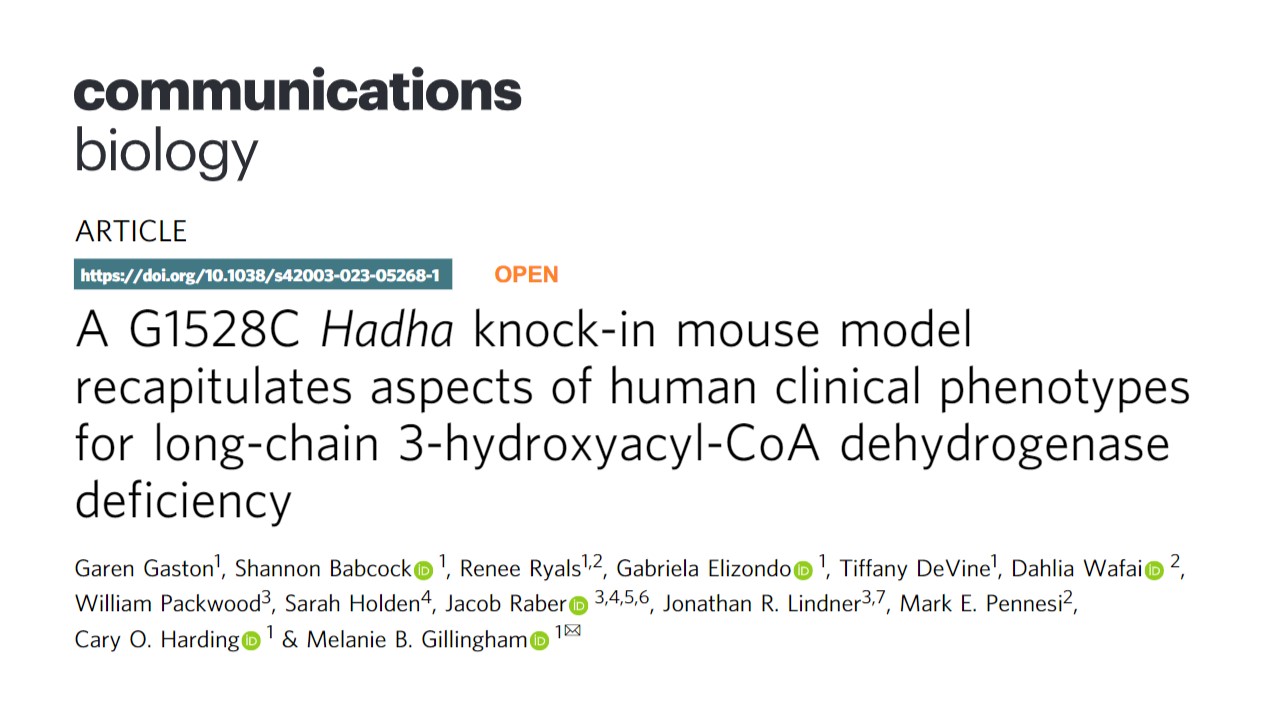
We have a new article published in the journal, Communications Biology. The title of the article is “A G1528C Hadha knock-in mouse model recapitulates aspects of human clinical phenotypes for long-chain 3-hydroxyacyl-CoA dehydrogenase deficiency”. The article details the development of our novel LCHADD mouse model which will allow us to further study the various complications of LCHADD and to test new therapies.
The article is available to read online.